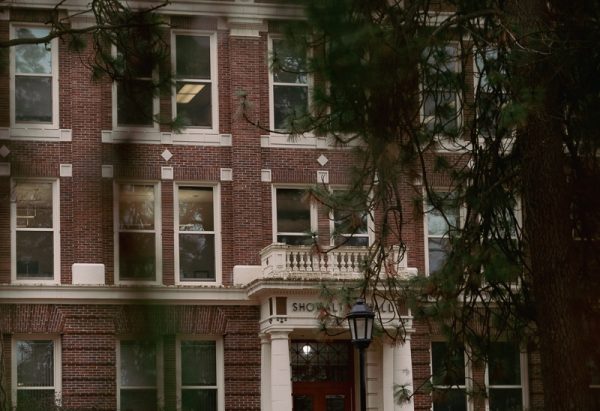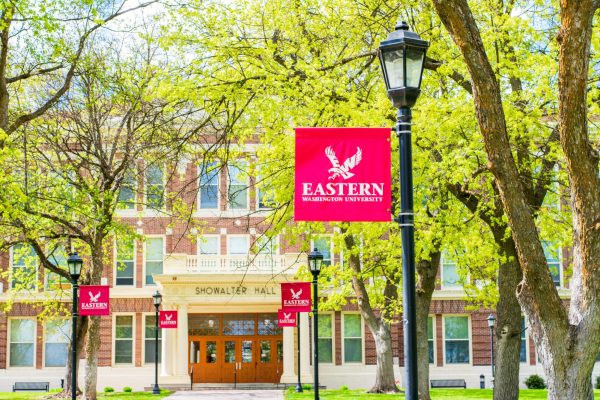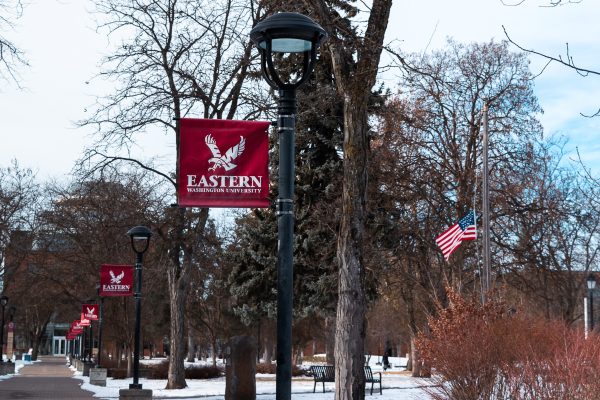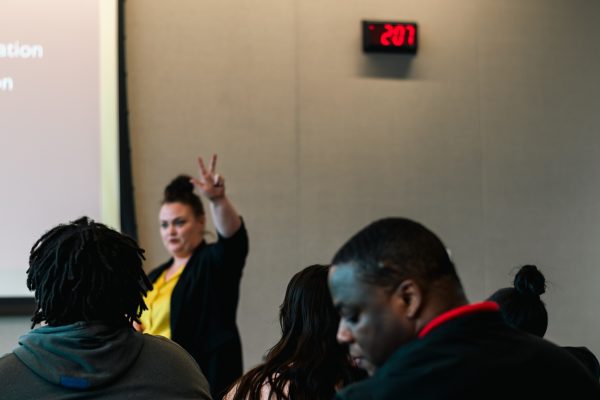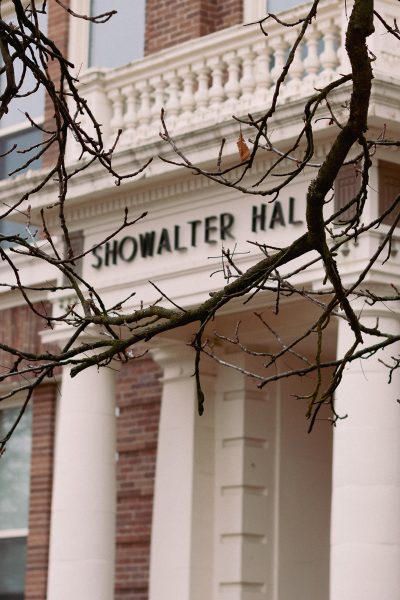Amnesty given case by case
October 3, 2012
Eastern will not be implementing a medical amnesty policy, also known as the “Good Samaritan” policy any time soon.
Instead of officiating a strict policy, the university will continue to practice granting amnesty on a case by case basis. This amnesty can be granted to underage students on and off campus seeking medical attention.
“I think this is something that we can educate and inform the EWU community about,” said Dean of Students Amy Johnson. “It’s not uncommon for institutions, and Eastern is one of them, to have a general practice of granting amnesty or something similar to amnesty in cases, particularly if it relates to sexual assault or sexual violence, but there are other cases where we exercise discretion … due to the seriousness of the case.”
Johnson says the practice also extends out to witnesses.
“That’s one of the things that often happens,” said Johnson. “The individual or the victim in the case is the person most unable to make the call, so a friend who may have also been at the same party with him or her calls, has been drinking and acknowledges that they’ve been drinking, but the interest and the institutional response goes into getting them help.”
According to Johnson, by having the practice of granting amnesty, EWU is not eliminating the possibilities of disciplinary sanction. The university conduct code is available online.
Issues that surround officiating a policy include how to educate large pools of students on what the policy would be, how to articulate what it means, how the university helps the students who called in and how students cannot abuse a policy
According to Johnson, every case varies and the university will consider each student and situation and act accordingly. She is glad to have the flexibility of practicing amnesty, rather than having an official policy the university would have to abide by.
“Every student case is different and one of the things I like and I appreciate often having is not a policy, but a practice,” said Johnson. “I have greater flexibility in terms of how I respond. … It’s helpful often to have things as a matter of practice, as opposed to policy. Having a policy does dictate what must happen.”
Eastern’s drug policy follows Washington state drug law. It states that any use or sale of illegal substances on campus is prohibited.
According to ASEWU Executive Vice President Becca Harrell, the practice of granting amnesty has been a process with EWU Police for a while.
“It seems to have positive effects but what we really want is to push for an actual policy, at least for myself as a student. I’ve seen other students who are still unaware and I think that until it’s written down and people have a written policy in front of them, there will still be confusion, Harrell said.
Harrell believes students will be afraid to call for help in fear of possibly getting a minor in possession.
In 2010, Richmond University compiled a list of colleges and universities that have some form of their own medical amnesty. According to their research, policies at individual colleges and universities vary.
Cornell University, infamous for its 2002 research on the policy, recently amended their policy to include drugs in addition to alcohol immunity.
Medical amnesty can come in different forms. Limited immunity, which grants immunity to all parties involved but with some consequences and straight-up immunity where the person who calls for help is not held responsible for repercussions.
Other degrees of medical amnesty also extend to organizational amnesty, which grants protections to organizations such as clubs, Greek houses and other social venues. According to the Washington state 911 Good Samaritan Law, those with outstanding warrants, probation or parole violations, homicide or drug manufacturers are not granted immunity.
Harrell said, “I think that if the students feel that it’s the best thing to do, then that’s what we should be doing for them. … Students here on campus should feel as safe as possible, and if this is a way that they’re comfortable getting medical attention then it should be done.”
Each year, colleges and universities that have the federal aid program are required to issue the Clery Act report. The act provides information on campus crime over a three year period.
According to the university’s 2010 Clery report, eight forcible sex offenses occurred on campus, seven in residential facility and one on public property.
“It’s informative,” OSRR Director Stacey Reece said of the Clery report. “Definitely when students are looking at institutions, it might be something that their parents are interested in.”
According to Reece, the Office of Student Rights and Responsibilities also see cases of sexual assault. She says a few cases each year go through a hearing process.
Reece says the practice is not to hold them accountable for drinking, but to get them assistance.
As stated in the university’s 2011 Clery report, there were 153 liquor law violation and 73 drug law violations that occurred on campus. Liquor law arrests number 10, while drug arrests stand at 28. All arrests occurred on campus.
As also stated in the 2011 Clery report, 11 forcible sexual offences occurred on campus, 13 in residential facilities and three on non-campus property.
“There are multiple people that can actually collect data,” said EWU Campus Police Administrative Assistant Taylor Vancurler. “For sexual assault specifically, an individual doesn’t have to file a police report to report something that happened. Someone maybe going to get emotional services, and if that individual is a [Campus Security Authority, they] can be disclosed for crime statistics.”
As an institution, EWU collects data from multiple Campus Security Authorities, according to Vancurler.
“Do we see instances where folks are calling on behalf of a friend? That’s not as common,” said Reece. “Usually it’s lower level alcohol interactions where students have had a couple of drinks and they’ve brought attention to themselves on campus or off campus. Alcohol is the number one conduct violation that we see. Drugs are not as high, but we do see them.”
In 2010, Washington put into law a Good Samaritan Law that provides some immunity to those calling about a drug related emergency.
As stated in the university’s conduct code, anyone underage with possession or consumption of alcohol is not allowed on campus. Being underage and in possession of alcohol is considered a misdemeanor offence.
“I don’t necessarily think we put [students] at risk because again, in practice, we help support the student and having some flexibility in what that support looks like is a good thing,” Reece said to not having a medical amnesty policy.






![Simmons said the biggest reasons for her success this year were “God, hard work, and trusting [her] coach and what she has planned.”](https://theeasterner.org/wp-content/uploads/2024/05/image1-1-1200x800.jpg)




